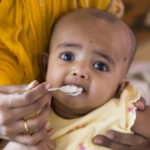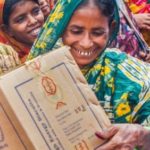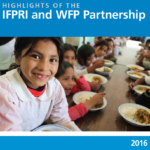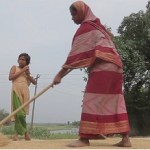By 2010, the collaboration between the World Food Programme (WFP) and IFPRI broadened beyond food security—defined by the United Nations as access to sufficient, safe, and nutritious food for a healthy life—to encompass nutrition security—defined as having sufficient quantity and quality of food to meet dietary needs and food preferences. This wider scope was driven by >> Read more
Bangladesh
Despite improvements in agricultural production and improved child nutrition rates, Bangladesh continues to face persistent and emerging challenges such as worsening soil fertility, population growth, climate change, poverty, and access to natural resources. In the Government’s efforts to overcome these challenges, it has been working with IFPRI since the 1990s to develop evidence-based research on food aid, agricultural technology, gender dynamics in extension programs, nutritional interventions, and poverty reduction investments to inform policymakers.
In 2010, IFPRI, with the Government of Bangladesh Ministry of Agriculture and the United States Agency for International Development, initiated the Bangladesh Policy Research and Strategy Support Program—an innovative initiative designed to improve agriculture, and food and nutrition security that has led to research influencing the Government to adopted policies emphasizing strong food and nutrition security.
More on IFPRI’s impactful partnership with the Government of Bangladesh can be found in this brochure.
IFPRI and WFP: Rethinking Food Aid to Reach the Poor
In the mid-2000s, as the World Food Programme (WFP) partnered with IFPRI to evaluate which type of transfer—cash, food, or a combination—is most effective in putting food on the table for the poor in Bangladesh, Ecuador, Niger, Uganda, and Yemen.
Improving Food Distribution in Bangladesh
One of the World Food Programme (WFP) and IFPRI’s earliest collaborations was in Bangladesh. In the 1990s, the country suffered food shortages caused by natural disasters and crop failures. In response, WFP and other donors supplied food for the government of Bangladesh to distribute. However, with growing concerns that food aid was not reaching the >> Read more
Highlights of the IFPRI and WFP Partnership
This brochure presents highlights of the IFPRI-WFP partnership. More than two decades of strong partnership between WFP and IFPRI began with a shared goal of creating more effective and efficient food aid distribution systems. Over time, the collaboration moved toward designing social protection programs that use food and cash transfers to improve nutrition for the poor. >> Read more
WEAI: Making Development Programs Inclusive
Since its launch in 2012, WEAI has been revolutionizing how women’s empowerment and role in agriculture are seen and measured. WEAI also proved to be very valuable to other organizations’ monitoring and evaluation efforts.
Channeling Social Protection Programs for Improved Nutrition in Bangladesh
IFPRI partnered with WFP-Bangladesh to pilot the Transfer Modality Research Initiative (TMRI). IFPRI’s study produced robust evidence that providing nutrition education along with cash transfers improved the recipients’ nutrition, health, and overall well-being.





